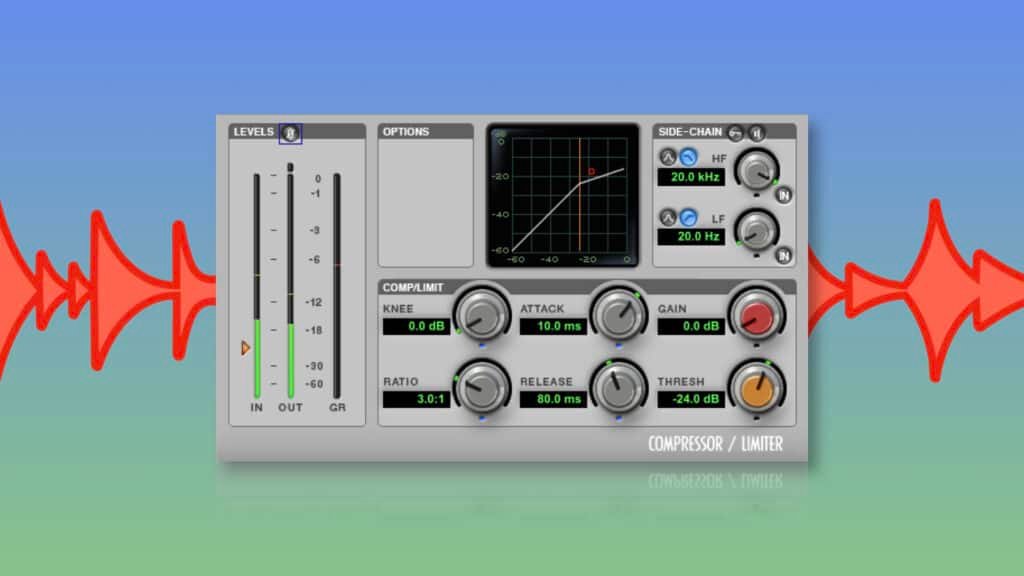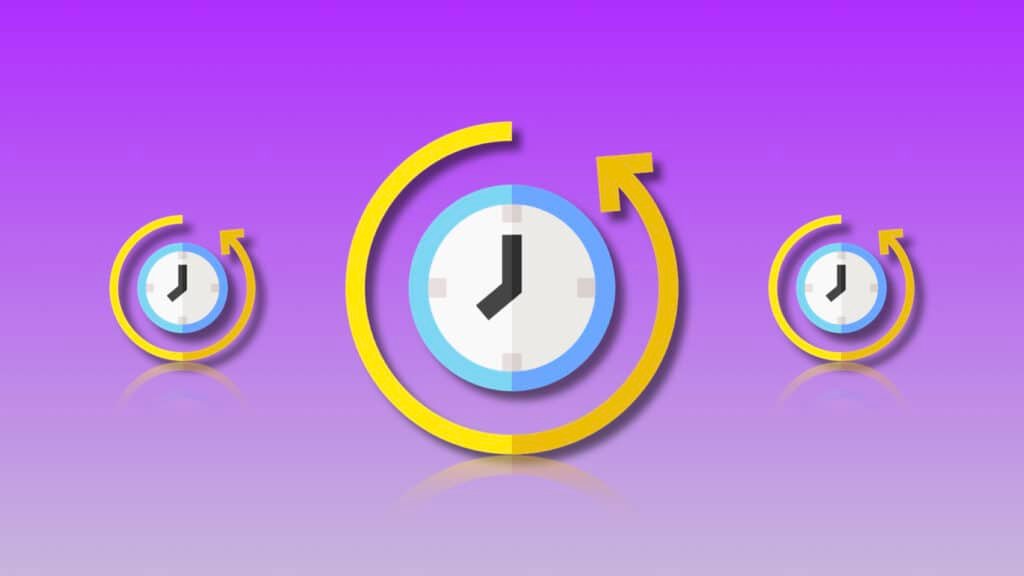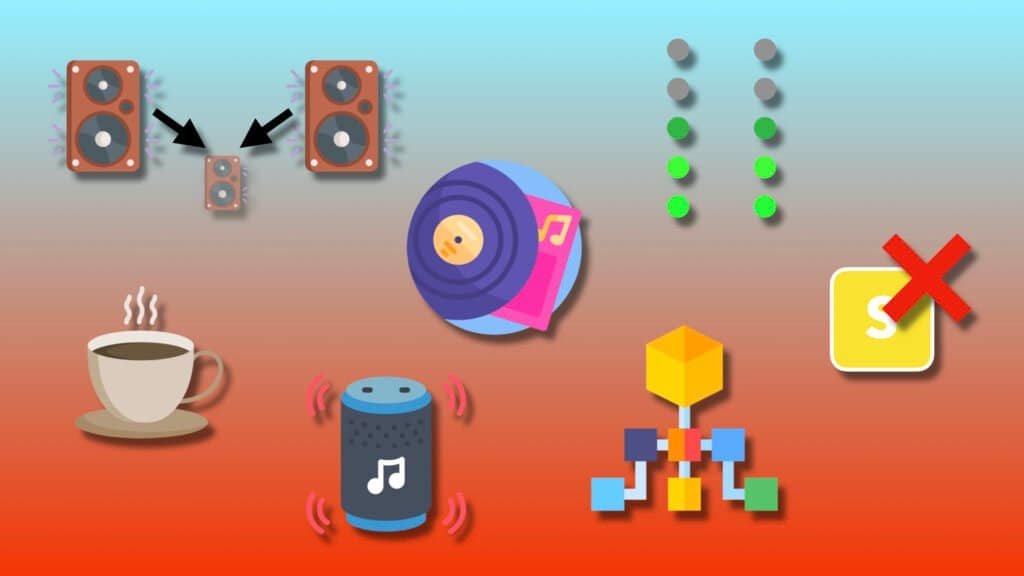As an artist, singer or musician, you’ve probably reached a point where you’re thinking of investing in online mixing and mastering services. But is it worth paying for professional mixing and mastering services? I’ll give you all the information you need about this in this article.

As a general rule, paying for pro mixing and mastering services is clearly worth it if you have certain ambitions in the music industry. It’s even recommended. But if music is a hobby or something you do for fun, it’s definitely better to mix your own music.
In this article, we will first look at what you absolutely need to know about the world of professional mixing and mastering before you begin any thoughts on the matter.
Then, I’ll tell you everything you need to think about in order to know whether or not, in your personal case, it’s worth hiring a mixing engineer or not for your music.
Most of these questions can be answered on a case by case basis. In most cases, neither a yes nor a no is enough to answer accurately. So, I advise you to take the time to read everything in order to get a good idea of where you stand on the question.
Because all the points that will be covered in this article are important.

What are the differences between an amateur and a professional mix?
The first thing to understand before you think about it is the differences between an amateur and a pro mix. By identifying this, you will be able to more easily judge the need to pay for a mixing engineer or not.
Here are the 5 main things that differentiate an amateur mix from a pro mix…
Well-balanced frequency range

Very often, one of the big flaws of amateur mixes is that they are completely unbalanced in terms of frequency spectrum. Too much bass, lack of clarity, boominess, too much aggressiveness,… These are all typical cases of a… failed mix!
And this is where a professional mixing engineer makes a big difference. Because he/she has everything needed to never miss in his/her frequency balance. And the combination of all these elements ensures a certain consistency in the frequency rendering, in every mix.
- One or more pairs of quality monitors. Quality monitoring is essential for mixing music properly. And most pro mixers go even further: they have several monitoring pairs to compare their mixes with different types of listening. Ideal for a balanced spectrum.
- Super sharp ears. Not everyone has the same hearing ability. And above all, not everyone trains their ears in the same way (which is normal). But the professional mixing engineer will always have this ability to identify mix problems very quickly. Thanks to many years of training and practice.
- Room well treated acoustically. The room plays an important role in the listening quality. And above all, a badly treated room can completely transform what comes out of the speakers and into your ears. Fortunately, the rooms in which pro mixing engineers work have very neutral acoustics. This can make a huge difference with a badly treated home studio.
The use of good tools, quality plugins, musical references and specific ways of working are also of great importance in the ability of the pro sound engineer to handle frequencies with more ease.
Dynamic control

A professional mixing engineer also has the ability to control the dynamics of a song very precisely. And in today’s music industry, dynamic control is essential to get on the radio or to be added to Spotify playlists.
And this requires several tools and skills, including the compressor. Using the right settings and the right kind of compressors on the right tracks is not for everyone. It takes practice over several years.
But thanks to his knowledge of music mixing, the professional sound engineer will master the dynamics of your tracks with ease, stability and precision.
But good dynamics also require good automation. This is also a big difference between an amateur and a professional mix. Because, often, amateurs don’t use automations properly, or even… not at all!
This does not mean that the mixing engineer will completely crush your dynamics. He/she will always find a happy medium between controlled and breathing dynamics.
Recording Quality

Yes, I know, it seems out of context because we are talking about music mixing and not recording. But the quality of the recording is just as important as the quality of the mix. One will always depend on the other.
And that’s also something that can make a huge difference between a mix that sounds professional and one that sounds completely amateur.
Even though quality recording equipment seems to be more and more accessible in the home, high-end equipment is still very expensive. And yet, I promise you that between a $150 mic and a $1,500 mic, the difference in quality is very real.
But it’s not only the quality of the equipment that counts in a recording. The ability to record a source with precision and respecting (in advance) the intentions of the mix can be very complicated.
Well, this point doesn’t answer the main question at all, but… at least you can realize that with low-end recording equipment, it’s not always easy to come out with pro mixes.
And much more!
The difference between an amateur and a pro mix goes much further than these 3 points: harmonic richness, good use of effects, creativity, balance quality,… Many little things that make a big difference.
ℹ️ Want to dive deeper into the differences between amateur and pro mixing? Then I recommend this article on The 5 Things That Differentiate An Amateur Mix From A Pro Mix
The benefits of hiring a professional mixing and mastering engineer
To be able to put yourself in the right position, it is important to be aware of all the benefits that a professional mixing engineer can bring to your music.
This way, you will be able to weigh the pros and cons more easily. The only “cons” in many cases being the price to pay to hire the mixing engineer in question.
Basically, you simply have to ask yourself “Is the price I’m about to pay worth all the benefits I’m going to get from my mixing engineer?”
So here are the benefits of hiring a pro sound engineer to mix your music:
1. Experience

Mixing music in such a way that it sounds professional at the end of the process is not easy. It requires training and practice over the long term. And that’s exactly what pro sound engineers go through.
And after several years of practice, we can talk about experience! Experience is what allows any professional to adapt with ease to many situations in their profession.
Because, no, in music mixing, there is no magic trick that works every time. Certainly, there are good tips to follow and apply that will help you get quality. But each project requires adaptation.
And no matter what type of project you send to a professional mixing engineer, he/she will adapt with ease. He/she will then use the right tools and techniques to make a quality product from your multitrack.
2. Saving Time

Time is precious in the music industry. And by hiring a professional mixing engineer, you can save a lot of it! And this time saved, you will be able to use it to write, rethink, create your music in more depth than ever!
In terms of time, I would say that the advantage is even double. Because, first of all, you avoid spending hours and days mixing your own music (while probably not being sure of everything you do). And secondly, while you are spending time in areas of your music that you are better at (writing, creating,…) a sound engineer will be working on mixing your projects. What a luxury!
On top of that, a mixing engineer has one big advantage: efficiency. There is indeed a great chance that the pro sound engineer you hire will do in a few hours what you would do in several days or weeks. The difference is often huge!
3. Objectivity and Fresh ears

When you work on a project for a long time, you lose your objectivity. Your ears get tired and will be less and less able to identify potential flaws. This is scientific and totally unconscious, and therefore inevitable.
But a person who has not gone through the whole process of producing, writing and recording will not experience this weakness. Mixing decisions will then be much more lucid and thoughtful.
And then… honestly, having a second brain to make artistic decisions is always more productive than being alone. Because these decisions can be counterproductive for the good of your music, even if they seem to be appropriate.
4. Potential increase in streams and audience

All the benefits mentioned above come together in one main benefit: a potential increase in your audience and streams. A mandatory path to success these days.
I’m not saying that hiring a professional mixing engineer will directly increase your audience. But believe me, it greatly increases the chances.
Because, as an artist, don’t forget that people outside your family or friends circle will never listen to music for the artist’s sake. But for their own.
And most of your audience may not know anything about music. But an amateur mix, everybody can hear it, and it’s not pleasant to listen to. You have to provide quality to your audience to keep them coming back. And that means a quality mix.
ℹ️ The benefits of hiring a mixing engineer go far beyond the 4 outlined in this article, you can discover them all here: The 8 Benefits Of Hiring A Mixing Engineer
What is the difference between mixing and mastering?
Before considering anything with an online sound engineer who would offer music mixing and mastering, it is essential to know and understand one thing: the difference between mixing and mastering.
Mixing and mastering are two very distinct stages of music production. And although many sound engineers offer both services, they are not the same thing at all!
Depending on how far along you are in the process of creating your song, your needs will be very different and you won’t always need both. So here’s everything you need to know about the differences between mixing and mastering.
Simply put, mixing is the production step that consists of blending several tracks together in a harmonious way, using tools such as EQ, compressors but also effects such as reverb or delay. The mastering stage consists in processing the whole mix in a single stereo track to achieve a more balanced product in terms of frequency and dynamics.
Mixing
The mixing stage is the one that comes right after the recording stage (not counting the potential editing). At this point in the production process, all the tracks in your project are raw, without any effects or processing.
If you have worked with a recording engineer or producer, however, it is possible that this person has done an intermediate step between recording and mixing: the premix.
If this is the case, there might be some specific effects and processing ideas, but nothing that really makes your track sound harmonious and unified.
The person who will take over the mixing stage will probably be a mixing engineer. His role will be to process all the recorded tracks and, using different tools, to make a harmonious and balanced product from all the recorded tracks.
If you’re working in pop or hip-hop music, you may have recorded vocals on a stereo instrumental. If this is the case, the mixing engineer will process the vocals exclusively to match the instrumental.
In short, music mixing is about processing each track recorded beforehand in a separate way. The final product is then supposed to sound united and cohesive.

Mastering
As soon as the set of tracks sound united, cohesive and harmonious enough to form a coherent product, it is time to move on to the mastering stage.
It is usually a mastering engineer who will take care of this step. But as mentioned above, a mixing engineer can also take care of this step. Especially in a more independent field.
Now that the mixing stage is over, it is time to process the mix as a whole. You can think of mastering as a step where the mastering engineer will process the stereo file of your mixed track. But… for what purpose? What does mastering add to all this?
Actually, mastering will do several things.
First of all, in terms of frequency, where the mastering engineer will be able to correct the small flaws in the mix or push certain frequency bands to make the mix more exciting for the listeners.
Then, in terms of dynamics. The mastering engineer will indeed make the dynamics more punchy and energetic. Both at the micro-dynamic (transients) and macro-dynamic (general dynamics of the track) level.
But the ultimate goal of mastering is to bring the mix to a nominal broadcast level. Nowadays, this will usually be for streaming platforms. But it could also be a CD, or even vinyl.
In short, mastering aims to unify a song in terms of frequency, level and dynamics. And this to make them more pleasant to listen on their support of diffusion.
What are your ambitions in the music industry?
But behind all this, the most important criterion to know whether or not it is worth paying for professional mixing and mastering, is to know your ambitions in music.
Know one thing, the quality of the music you offer to your audience has to match your ambitions. At ALL levels. And mixing and mastering is no exception to the rule.
Big ambitions
Do you have big ambitions as an artist, singer or rapper? Do you want to be the next big thing in your country? Or even the world?
First of all, there is nothing wrong with having such ambitions, such high and lofty dreams. Because it’s by setting the bar high that you can achieve big goals.
But if that’s the case for you, then you need to be able to surround yourself with the right people. And in terms of pure musical quality, paying for professional mixing and mastering is essential for your future career. The reasons are numerous.
First of all, with professional mixing and mastering, your music will be much more enjoyable to listen to. Which means you have a much better chance of building a loyal audience… and growing one!
Secondly, you’ll also increase your chances of being featured in successful Spotify playlists. People who select tracks for big playlists will never stop at poorly mixed and mastered projects. They want good quality mixing and mastering!
And last but not least, you will also have more chances to be accepted or followed closely by festival organizers or… big labels. This kind of organization has only one goal: to be successful with the public. And only quality music can do that.
Keep in mind that no artist has ever made it in the music industry without delivering quality music in terms of mixing and mastering. There might be a few exceptions, but honestly, they are very rare.
Making music for fun
If you make music purely for fun, then paying for professional mixing and mastering doesn’t make much sense anymore. Because, except in exceptional cases, you would be spending your money on something that would bring you almost no return.
If you are an amateur artist and want to stay that way, it is more beneficial to work on the mixing and mastering yourself. In addition to saving money, you will enjoy several benefits.
The first is that by practicing, you will be able to help your friends and acquaintances who need help in the mixing and mastering business. It can also be a great way to meet people in the music world!
Then, you will gain some experience. And even though it might not be related to what you do in your professional life, having experience in a certain field is always good to have!
And finally, you will have the chance to work on your own music and see it evolve with your own knowledge. What a great feeling!
Learn or delegate
You have two options when it comes to mixing and mastering. Either you learn how to mix and master your music. Or you delegate to a professional mixing and mastering engineer.
Each option has its advantages and disadvantages. But you will understand, depending on what you want to get from the music industry, each option will be more or less advantageous.
Option 1: Learn

If you decide to go down the path of learning, be aware that it will be at the cost of your time. Because learning to mix takes time, lots of time! And to reach a pro level, it will take years.
It can also be a big mental burden if you create a lot of music. Because yes, learning is also going through more difficult phases. And you can encounter problems and obstacles that are sometimes complicated to manage.
Also keep in mind that if you start from scratch, it will be difficult to release music that is even listenable in the first months. This can also be mentally difficult.
But the big advantage is that you won’t spend a dime on it. Or at least very little money.
ℹ️ If you go for this option, you need to start somewhere! Here’s where you can have all the information you need about How To Start Mixing Music As A Beginner
Option 2: Delegate

On the other hand, you also have the choice to delegate and pay for professional mixing and mastering. In this case, it’s a real professional who will take care of your music, someone who will assure you a top quality mixing and mastering!
And whatever the field, delegating means saving time to use it for something you can be more productive in. In your case, if you are an artist or singer, it will probably be time to create and write music.
And while you are creating, someone will be working on mixing and mastering your music. All the while assuring you of professional quality at the end of the process. It’s very comfortable.
But the only downside is the money. It’s up to you to determine the budget you have to put into professional mixing and mastering.
How can I find the right Sound engineer
If you decide to go with a sound engineer for everything related to mixing and mastering, the next step is to choose the right sound engineer. And finding an engineer that fits your needs is not easy…
To help you structure your ideas and make the right choices regarding the person who will take care of the mixing and mastering of your projects, I’ll give you a few things to look out for.
All these tips are very simple to apply and take very little time. But if you want to make the most efficient choice possible, then it is important to take into account all these criteria, without exception.
ℹ️ Are online mixing and mastering services actually trustworthy? Here’s everything you need to look at before making a decision: Are Online Mixing Services Trustworthy ? 5 Things To Look At
1. Musical genre

To be sure to get a quality mix and mastering, you should absolutely choose someone who specializes in one or two genres of music. And definitely not someone who claims to mix “all genres of music”.
Because mixing music professionally is one thing, but being faithful to the codes of a genre is another. Reggae music cannot be mixed like pop music, for example.
And a sound engineer who would mix and master your project with the wrong codes could completely ruin your credibility with your audience. Believe me, without knowing it, your potential audience knows the codes of the genre they are listening to.
So it’s essential to go to someone who will be able to adapt his mix and master to the codes of the genre with ease.
2. Price / Budget

The average price of the sound engineer you plan to work with must absolutely fit your budget. Not lower, not higher. I’ll tell you why…
First, there is a purely practical reason. If you allocate a certain budget to something, that’s money you’re willing to put in to get what you want in return. If you put less, you decrease your chances of getting what you want. And on the other hand, if you put in more, you’ll potentially lose money for a level of quality you don’t necessarily need.
As for the sound engineer alone, the price of his mixing and mastering services can say a lot about the quality he delivers. Low prices are not always a good sign, as they can indicate poor quality.
And even though high prices are not always attractive when it comes to paying for mixing and mastering, it is often the best option. Because these are sound engineers who most likely know their stuff and will deliver pro quality through their mixing and mastering process.
If you need to put in a little more money than you budgeted, don’t hesitate to do so! But don’t go too far, because you might have expectations above what you’ll get.
3. Turnaround time

The turnaround time can vary greatly depending on the sound engineer. For mixing and mastering services, it can go from 1 day to… 2 weeks.
It is essential to look at this before choosing your sound engineer. It can create misunderstandings and money problems with your sound engineer, which you probably don’t want to have!
This is even more important if you plan to have larger projects, like an EP or an album, mixed and mastered. Because it increases the turnaround time tenfold.
I would still advise you to beware of very short turnaround times. Because they are often a sign of less quality mixing and mastering. Generally, the “classic” turnaround is between 3 and 6 days.
ℹ️ Reviews, portfolio, mixing styles,… These are also things to take into account! Want to discover all the important criteria? Everything’s there: How To Choose The Right Mixing Engineer For Your Music?
Conclusion
Paying for professional mixing and mastering has many advantages: musical quality, credibility, audience loyalty, potential increase of streams,… All positive points for artists with big ambitions in the music business, but less significant for artists without real ambition.
But if you want to become a professional artist, singer or musician, then you should definitely think about paying for professional mixing and mastering.
Because by choosing the option of mixing and mastering your own music, you are choosing the option that will keep you at amateur status for at least several years. Do you want to? You decide!
If you have any questions about mixing and mastering services or anything related to the music business, please contact me, I’ll be very happy to help you!
Related Articles:
5 Things That Differentiate An Amateur Mix From A Pro Mix
The 8 Benefits Of Hiring a Professional Mixing Engineer
How To Choose The Right Mixing Engineer For Your Music?
How To Start Mixing Music As a Beginner?
Are Online Mixing Services Trustworthy ? 5 Things To Look At
Top 10 Reasons Why Your Mixes Sound Amateur
Vocal Mixing : 9 Simple Tips To Improve Quickly
My favorite tools for mixing pop and hip-hop music:
Plugins
In the field of auto-tune, I’m convinced that nothing’s better and more efficient than Antares Auto-Tune Pro. As for the EQ’s, FabFilter Pro-Q3 and Slate Digital Infinity EQ are, in my opinion, the best tools. For compression, I have 2 favorites plugins: Waves RComp and UAD EL8 Distressor.
As for reverb, I’m a big fan of the Soundtoys Little Plate, but generally, I go for the Valhalla VintageVerb for its versatility. I also love the Arturia Rev PLATE-140 and the UAD Pure Plate for its organic side.
Headphones
The closed headphones I love and will always love using for mixing pop and hip-hop music are the Beyerdynamic DT-770. As for the best open-back headphones, I use the Sennheiser HD600 headphones, and I’m really happy of them!
Monitors
Having a pair of Yamaha HS7 in its studio or home studio is always cool for more excitement while listening to your mixes. The Adam Audio T7V monitors are also super accurate. In my studio, I also have a pair of Genelec 8030 for their reliability.
Hardware gear
For anyone who wants to start using hardware in their mixes, I always recommend these 2 units from Klark Teknik: the EQP-KT and the 76-KT. Don’t forget to use good converters, such as the Apollo interfaces. This is essential for a good rendering.






